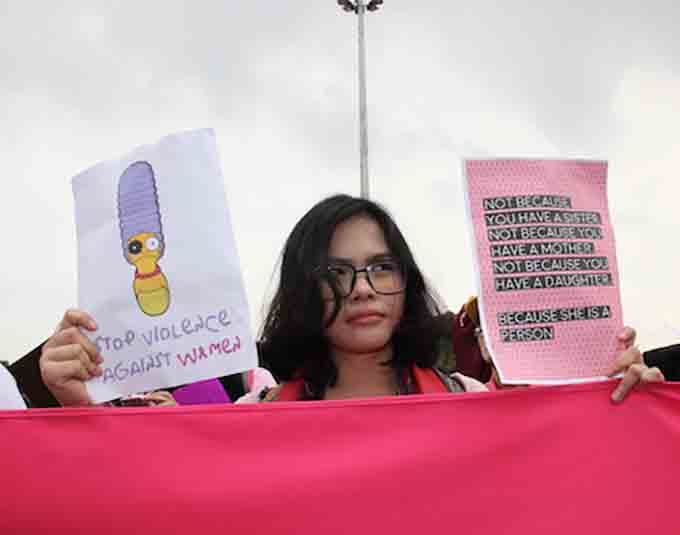The women’s march in Jakarta. Video: UNANews
By Katharina R. Lestari in Jakarta
More than 1000 Indonesian women took to the streets of Jakarta this week to demand greater respect for women’s rights and gender equality.
The women marched through the city centre at the weekend and converged on the presidential palace to mark International Women’s Day that fell on Wednesday.
“Women’s rights in this country are not recognised, which is seen in the way laws, which should protect us, often neglect us,” march organiser and women’s activist Ririn Sefsani said.
She cited the high maternal death rate among Indonesians as an example.
“Indonesia has an abnormally high maternal death rate when compared with many other countries,” the programme manager for activist group Partnership for Government Reform, said.
Child marriage, a lack of healthcare facilities and poor or non-existent reproductive health education were to blame for many deaths, she said.
Indonesia recorded 359 maternal deaths per 100,000 births in 2012, according the latest government figures, more than triple the rate in 2007, which stood at 102 deaths per 100,000 births.
Child marriage
Child marriage is also a major obstacle to a woman’s right to an education, Sefsani.
According to the Indonesian Statistics Agency, about 340,000 Indonesian girls aged 15-18 get married each year.
Indonesia is ranked 37 on the global child marriage index and is the second highest in Southeast Asia after Cambodia.
Indonesia’s marriage law says the minimum age a woman can get married is 16, but this is often flouted with many 15-year-olds or even younger being married off without any intervention from authorities.
“No more child marriages. No more maternal deaths,” Sefsani told the women protesters, as she called on the government to make sure that people’s rights laid out in the Constitution applies to both men and women.
Women’s rights activist Musdah Mulia called for equality across the board and an end to patriarchal and discriminatory regulations which are a contributing factor behind violence against women.
“There must be no discrimination based on anything including religion,” she said, singling out bylaws discriminating against women.
Discriminatory bylaws
According to the National Commission on Violence against Women says there are more than 400 discriminatory bylaws targeting women across Indonesia.
In Aceh province, which adopts stricter Shariah-based rules and where women are often caned if they break them, one bylaw bans women from straddling motorcycles.
Women should unite to stop all forms of violence, including that done in the name of religion, Mulia said.












































